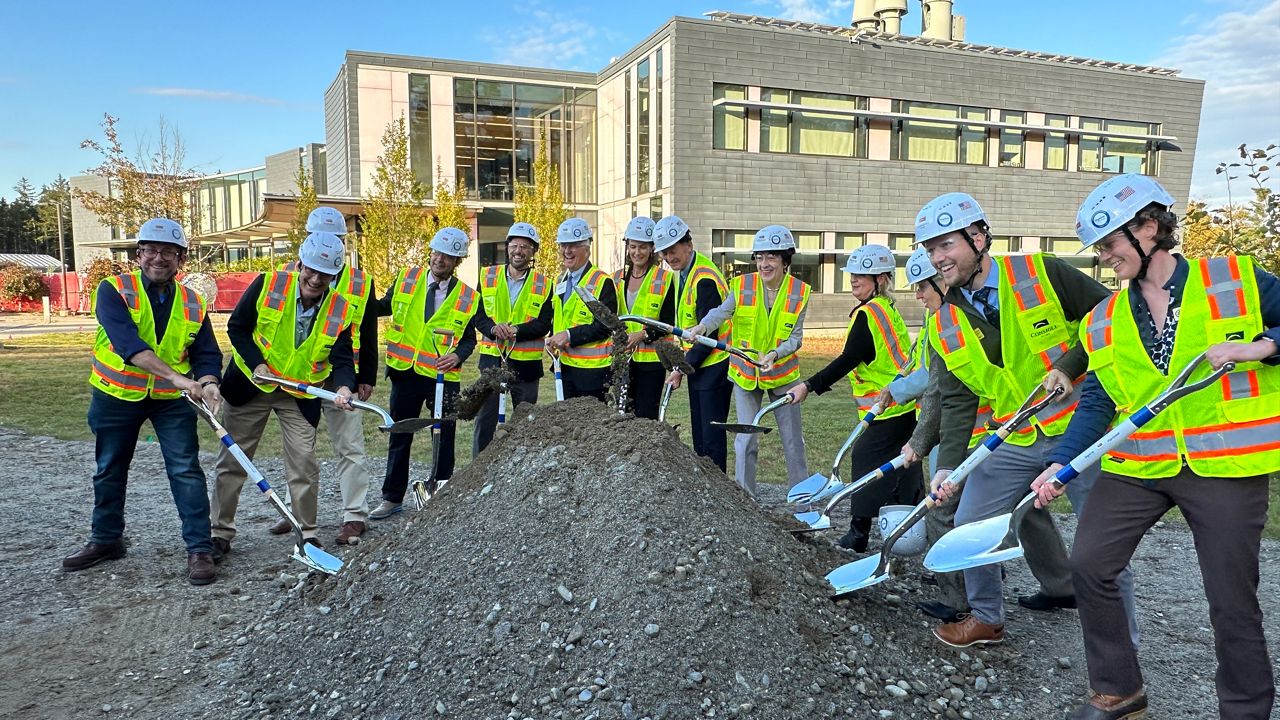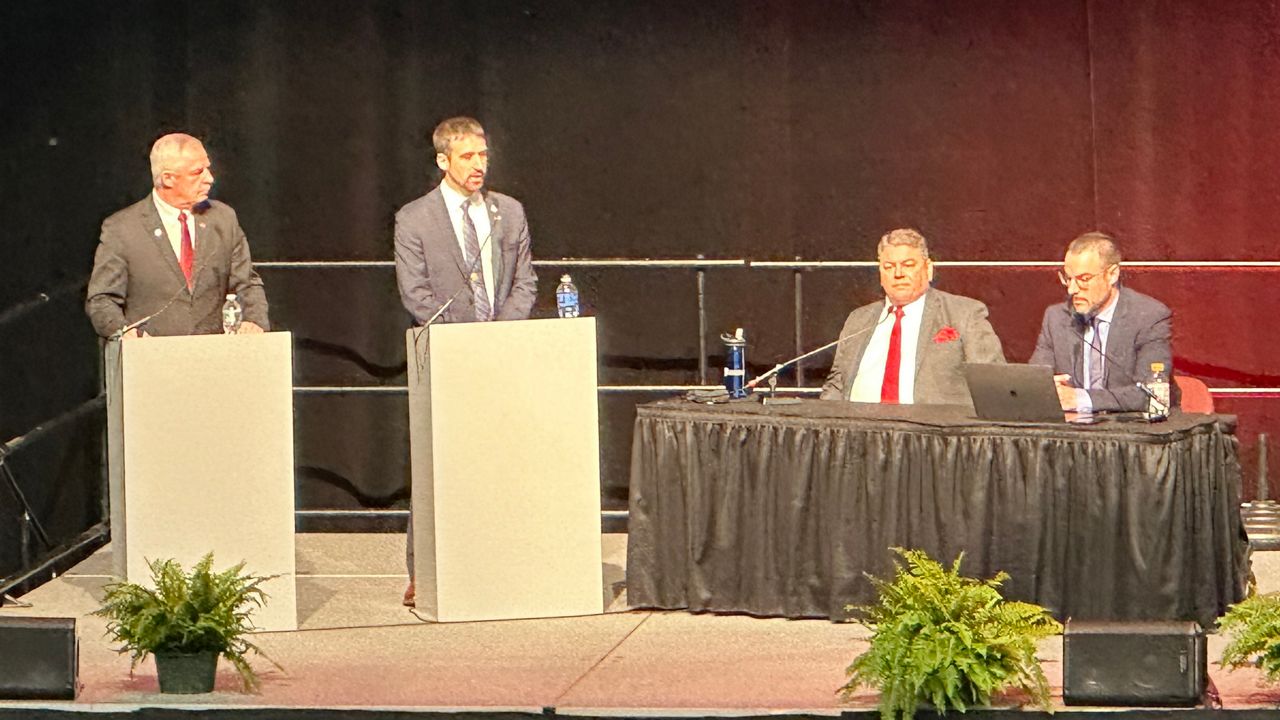The expansion of a lab in East Boothbay will help scientists find ways to address the damage done by climate change, the president of the Bigelow Laboratory for Ocean Sciences said Thursday.
“This work has never been more important,” said Deborah Bronk, president and CEO. “When it comes to looking at the ocean and climate change it is all about the microbes. They will determine how the ocean responds to a changing climate and they are our greatest tool at trying to address the damage that’s been done to the ocean and to try to heal the planet.”
Bronk’s remarks came at the official groundbreaking for a new 25,000-square-foot Center for Ocean Education and Innovation that’s supported by a $12 million federal grant, $9 million from donors and $8 million from the Harold Alfond Foundation.
Sen. Susan Collins and Gov. Janet Mills told the crowd of more than 200 about the importance of the scientific discovery that takes place at the lab and the potential for economic growth.
Mills said the expansion is part of the state’s “blue economy” that focuses on ocean health and sustainable fishing and aquaculture.
“Because of you they will understand the importance of the blue economy,” she said. “More research will help humanity chart a new course for the heart and the health of our planet.”
Collins, a Republican, said she remembers when the lab moved from West Boothbay to East Boothbay and the $1.5 million in federal funds she helped get to pay for the move. As vice-chairwoman of the Senate Appropriations Committee, she and Rep. Chellie Pingree (D-1st District) helped secure the latest round of funding.
“Today, Bigelow laboratories is a world-renowned leader in efforts to study and improve the health of our oceans,” Collins said.
She said the work done at the lab is an “enormous benefit to the Gulf of Maine, our seafood and tourism industry and our coastal communities.”
The $30 million expansion will include teaching labs, research facilities and a 300-seat forum that will be available for community gatherings.
The center, which is slated to be completed in 2025, will join other facilities at the East Boothbay lab, an independent, nonprofit research institute.
The scientists study ocean health “from the Arctic to the Antarctic.”
“We’ve reimagined ocean research — fusing the best of scientific inquiry and entrepreneurial ingenuity,” according to the lab’s website. “This bold and nimble approach has transformed our independent nonprofit from a scrappy startup to a world-renowned hub of ocean discovery during the last 50 years.”
The lab’s strategic plan lays out goals to advance the study of threats to the ocean, such as overfishing, nutrient and plastic pollutants and harmful algal blooms.
It also studies carbon sequestration, which is one way to reduce the amount of carbon dioxide in the atmosphere “with the goal of reducing global climate change,” according to the U.S. Geological Survey.
Another goal is to study the genetic makeup of the ocean to help “predict climate change effects” and look for potential pharmaceutical applications.
Greg Powell, president and CEO of the Harold Alfond Foundation, said across Maine 275,000 people work in science, technology, engineering and math, with a $30 billion economic impact.
“There are times when it can be difficult to feel optimism and hope in our lives as we witness divisiveness, discord and war in the world around us,” Powell said. “This is such a time. But here in East Boothbay we can be heartened and inspired by all the good work of humanity that gets done here every single day.”









)